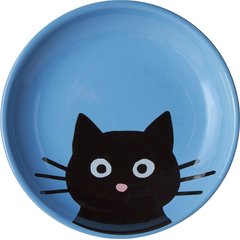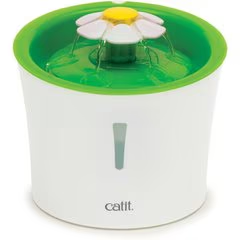Can Cats Eat Peas?
Adobe Stock/Victoria
You sift through your refrigerator containing the healthy fruits and veggies you’ve stockpiled to eat for the week and notice a bag of fresh peas, just as your cat wanders past. You know peas are good for people, but can cats eat peas? And if they can, are peas good for cats?
Read on to learn everything you need to know about cats and peas.
Always talk to your veterinarian before introducing a new food to your cat’s diet.
Are Peas Good for Cats?
The good news is that peas are not toxic for cats. In fact, peas are quite safe for cats to eat. But does this mean you should share some of your peas with your feline? Not necessarily.
Cats are obligate carnivores, meaning they are best suited to eat and digest the nutrients present in meats and are much less suited to process non-meat foods, such as vegetables and fruits.
So, although peas are considered rich in many vitamins, including Vitamin A, B, C, and K, as well as iron, zinc, carotenoids, flavonoids, and fiber, cats are simply not able to extract and utilize these nutrients.
In fact, the excessive fiber from peas may even result in digestive issues in cats. This means peas are not the best food to meet cats’ nutritional needs.
Can Peas Be Bad for Cats?
The occasional pea that rolls onto the floor is unlikely to be harmful if scarfed up by your kitty, nor is the very limited amount of pea flour found in some pet foods.
But when peas are eaten regularly or in larger quantities, your cat may experience the following:
- In larger quantities, peas can result in digestive upset such as flatulence, vomiting, diarrhea, and constipation.
- Regular feeding of peas may dilute the overall protein levels and amino acids cats need and provide too much of some minerals, such as phosphorus. And the excessive carbohydrates present in peas may promote fat storage and weight gain in cats.
- Some cats may even develop an allergy to peas.
Consumption of the pods can also be a choking hazard. They also make peas less digestible. So, only offer your cat shelled peas.
How Many Peas Can Cats Eat?
Although not toxic, peas offer no essential health benefits to cats and should not be purposefully added to their diet in any significant amounts.
However, small amounts of peas offered on occasion aren’t likely to cause harm—unless your kitty develops a gastrointestinal reaction or allergic reaction to the peas.
Offering less than 1 tablespoon of well-cooked peas per week is likely safe for most cats.
A general rule of thumb when giving your cat treats or human food is the 10% rule: No more than 10% of your cat’s daily calories should come from treats. The other 90% should come from well-balanced cat food.
How To Safely Prepare Peas for Cats
If your feline has a fancy for peas, here are some tips for preparing peas for cats:
- Cook the peas until thoroughly soft and then mash them, removing any shells or other larger bits.
- Do not cook the peas in seasonings or cooking oils.
- Cool thoroughly prior to serving in your cat’s favorite food bowl.
Other Human Foods To Feed Your Cat
There are many other human foods that are more nutritionally appropriate for cats that you can share, including:
Cats and Peas FAQs
Can cats eat carrots and peas?
Much like eating peas alone, carrots and peas are nontoxic and likely safe for cats in small amounts.
However, carrots and peas are not particularly digestible for our feline friends and are likely to contribute to gastrointestinal discomfort if fed in any significant amount.
So, much like peas, it is best to just say no.
Can cats eat sweet peas?
Nutritionally, sweet peas and regular peas are essentially identical as far as your kitty is concerned. So, all the above information on peas pertains.
Although cats can eat sweet peas, they likely should not eat them, given the fact that they do not add any nutritional benefits to our obligate carnivore friends and may contribute to GI upset.


